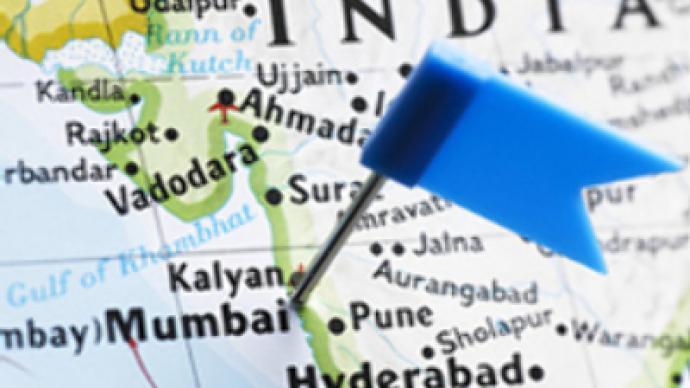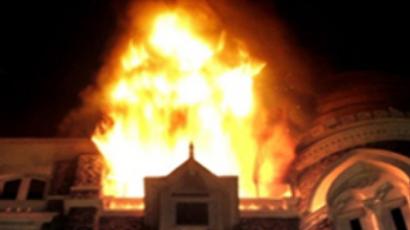Monday's press review

Monday’s Russian newspapers comment on President Medvedev’s visit to South America, analyze the global impact of the terrorist attack on Mumbai, announce the birth of a CIS specialized peacekeeping force and expose Georgia’s pre-war efforts in recruiting
ROSSIYSKAYA GAZETA has an article by Dr Vladimir Davydov, Director of the Institute of Latin America, Russian Academy of Sciences. He writes that the visit of the Russian President Dmitry Medvedev to Peru, Brazil, Venezuela and Cuba is an event of the utmost importance on a global scale. The academic says in the eight years that have passed since Russia fully reopened its South-American foreign policy, the volume of trade between the two regions has surpassed the figures known in Soviet times – if Cuba is not taken into account. There the cooperation hasn’t reached the Soviet-time level yet.
The writer says Russia and its South American partners view the World similarly: they are against unilateral domination by one ‘superpower’; they support a multi-centered World with a new architecture of global finance and global economic cooperation. The academic also adds that the countries visited by the President have long since ceased to be ‘the back yard of the U.S.’ and that they pursue their own interests in the global arena. Cooperation with Russia in the spheres of energy, transport and engineering, as well as military and technical cooperation is mutually beneficial for these countries and Russia, writes the author.
VREMYA NOVOSTEI publishes an article by Fedor Lukianov, the Editor-in-Chief of the magazine ‘Russia in Global Affairs’. He writes that the terrorist attack on Mumbai in India is going to have a much bigger global impact than many can imagine. The author writes that the main mission of the terrorists was to bring India and Pakistan, two nuclear powers, to the brink of war, and the latest news from the region confirms that that mission has been accomplished. The author also says that both India and Pakistan have been acquiring more and more weight in world politics.
Pakistan is an immensely important key to the solution of the Afghanistan problem. Without Pakistan, the Taliban cannot be suppressed for any significant length of time, says the author. Without Pakistan’s consent any struggle against militant Islam is in vain. However, he adds, the current government of Pakistan does not possess the previous one’s ability to float between the interests of the U.S., those of militant Islamists, and Pakistan’s national interest.
India is one of the fastest growing economies in the world, and not an insignificant military and naval power, writes Lukianov. There is a history of Indo-Pakistani conflicts and wars, and it shows that both nations are always ready for a fight, if not over the land of Kashmir then over insurgency or acts of sabotage allegedly committed by one side against the other. It is known, writes the author, that some Islamic radical groups that often commit terrorist attacks in India are based in Pakistan.
The author says the next few weeks will be crucial for relations between Pakistan and India, and therefore – for the world. The author says the Russian President Dmitry Medvedev will be the first world leader to visit India after a major terrorist attack which has the potential of changing the world’s agenda.
KOMMERSANT says India and Pakistan are already on the brink of war. The paper quotes experts to that effect and says that data from the interrogation of one of the terrorists captured by Indian security during the raid suggests that a Pakistan-based terrorist group is behind the attack. The paper also describes how Indian public opinion, which considers the current government ‘too soft on Pakistan-based terrorists,’ also blames it for the ‘inadequate performance’ of India’s law enforcement during the crisis in the streets of Mumbai. The paper says that the terrorists counted on exactly that kind of response from the public, to help grow one more Indo-Pakistani conflict.
NEZAVISIMAYA GAZETA has an article by the Secretary General of the Collective Security Treaty Organization, NIkolay Bordiuja. He writes that the CIS countries, also members of the CSTO, are signing a package of documents creating a peace keeping arm of the CSTO, a joint force meant and equipped for independent peace keeping operations, as well as part of a UN peace keeping efforts. The author says there are, of course, the joint CSTO Rapid Deployment Forces but their main task is fighting terrorism, not peacekeeping, so therefore they should not be used in peace keeping operations at all. The author says the latest events in the Caucasus have shown that peacekeeping should be conducted by units equipped and trained to divide the fighting sides of a conflict and prevent the escalation of a conflict, and that such will be the new-born CSTO peace keepers.
KOMSOMOLSKAYA PRAVDA publishes the results of its investigation into Georgian intelligence’s efforts in recruiting Russian citizens of Georgian ancestry who serve in the Russian armed forces, as spies before the ‘five-day war’ and propaganda tools after it. The paper has testimony from several non-commissioned officers of the Russian army with Georgian names who reported through the chain of command that they had been approached by Georgian intelligence officers while they were visiting relatives in Georgia before the war, with an offer to spy for Georgia out of patriotism. As ‘sticks’, there were threats to create big problems for their closest relatives living in Georgia. There were no ‘carrots,’ say the ex-‘spies’. They all reported the incidents as soon as they were back with their units.
Another group reported having been approached after the war. Those were grabbed in the street, threatened with harm to families, and taken to TV studios to videotape their ‘testimonies’ written up by Georgian intelligence, saying that in the first days of August Russia was preparing an attack on Tbilisi. None of the servicemen who reported those incidents was prosecuted. They were only debriefed, says the paper, about the details and personalities involved.
The paper also reports on the fate of several active Georgian agents who are awaiting trial at the moment. An expert from the Russian intelligence community is quoted as saying he defined these people as ‘one-time-use agents’ or ‘disposable assets’ because before and during the war the Georgian side was not in any way concerned about the safety and security of its agents. Georgian case officers called the agents on their registered mobile phones, making things easy for Russian counter-intelligence.
Evgeny Belenkiy, RT.













